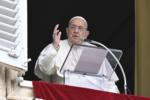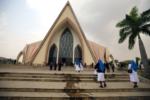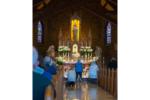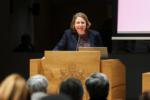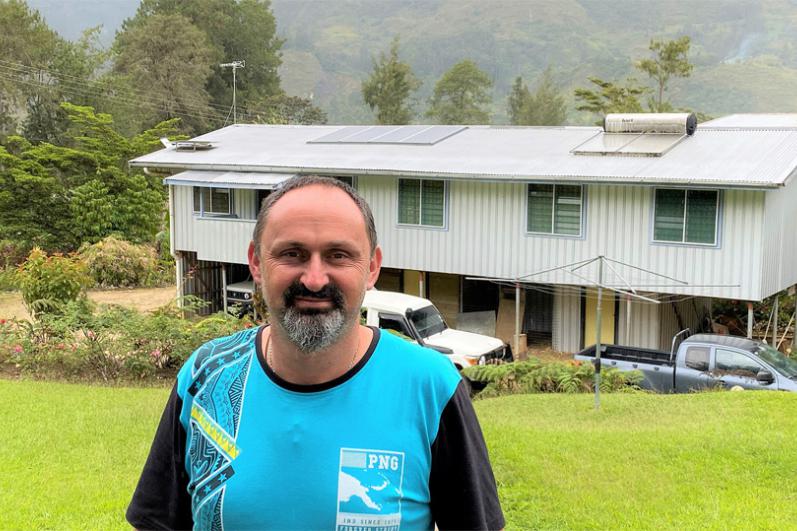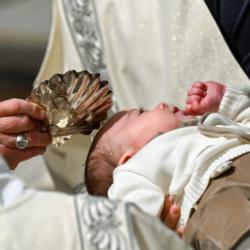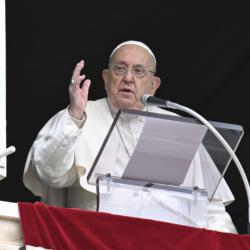Where Were you When the Lights Went On?
Many people of a certain age know the answer to the opposite question in our title because in 1965, a great blackout was experienced across parts of Canada and much of the Northeast corridor. About 30 million people were without power for up to thirteen hours. Although a few localities relied on their own power plants, most people were plunged into darkness.
For the people of Papua New Guinea (PNG), their experience with electricity is very different than ours. Currently, only 13 percent of PNG's 10 million people have access to grid-connected electricity. Blackouts are a common occurrence and can last for days. Once the power goes off, one is never sure when it will return.
Because it is one of the larger cities In the Southern Highlands Province of PNG, Mendi counts itself among the lucky, electrified few. Even so, during my 2019 visit to Mendi, Bishop Donald Lippert, OFM, Cap, told me that there are still many problems with their "fair-weather" electrical friend; all diocesan office work grinds to a halt when computers go black. Messages to rural outstations go unsent and travel is interrupted because diocesan vehicles' fuel tanks cannot be filled when pumps don't work. Classrooms, like those used by the students training to be Catechists or Catholic pastoral health workers, go dark.
During the day, it is an inconvenience. As we sat in the Cathedral for daily Mass and the lights went out, the celebration continued. While writing in my journal about the day's events and uploading pictures from my camera to my computer, losing power meant an early bedtime!
Bishop Don is grateful for the donors and benefactors to The Society for the Propagation of the Faith who are making a difference in the work of his diocese. Since 2007, the Diocese of Mendi has received multiple grants from the Propagation's General Solidarity Fund -- where your donations go -- so that solar panels and the necessary equipment can be installed at diocesan offices, rectories, and convents.
There are currently five buildings running on the power of the sun. This saves the diocese much needed money by lowering the electric bill. At the time of my visit, a missionary priest assigned to Mendi had the skills necessary to install not only the panels but also the batteries and monitoring equipment that keep electricity flowing, saving the diocese even more resources. These funds are being spent on the evangelizing work of the Church.
To help Bishop Don and others like him to expand solar projects, which allows them to bring the Light of Christ to more people in the missions, go to www.propfaithboston.org.
- Maureen Crowley Heil is Director of Programs and Development for the Pontifical Mission Societies, Boston.

